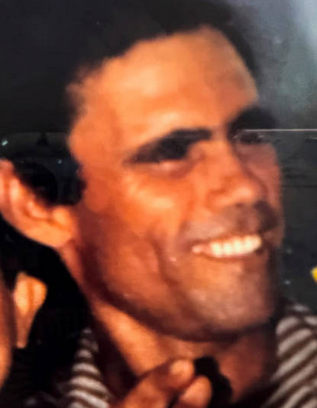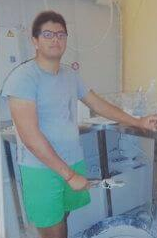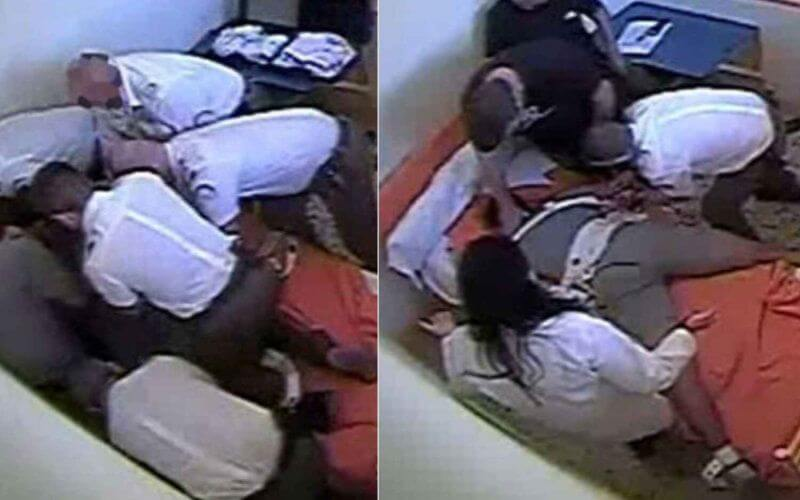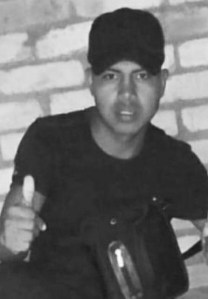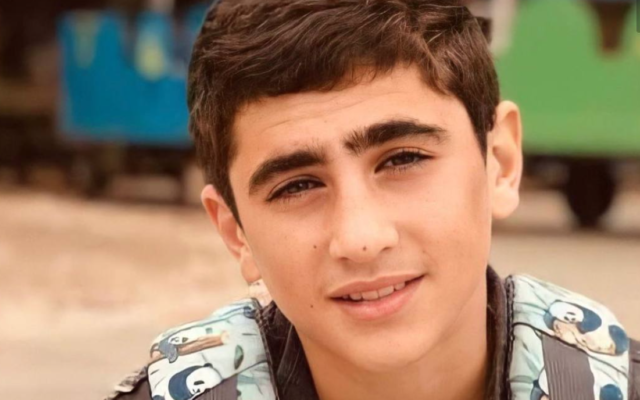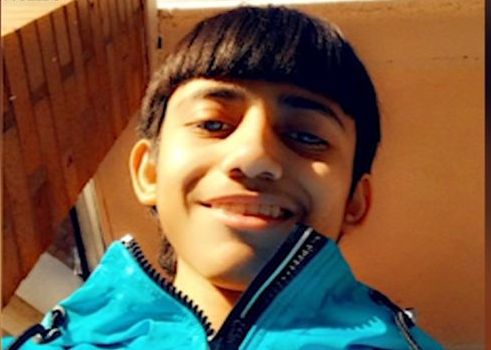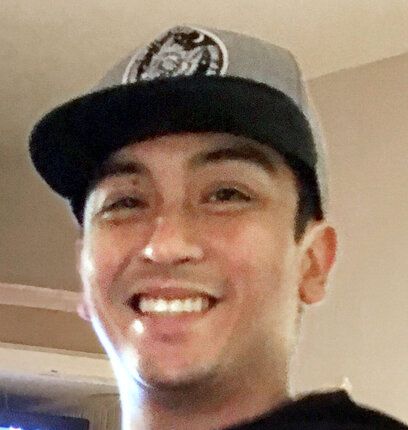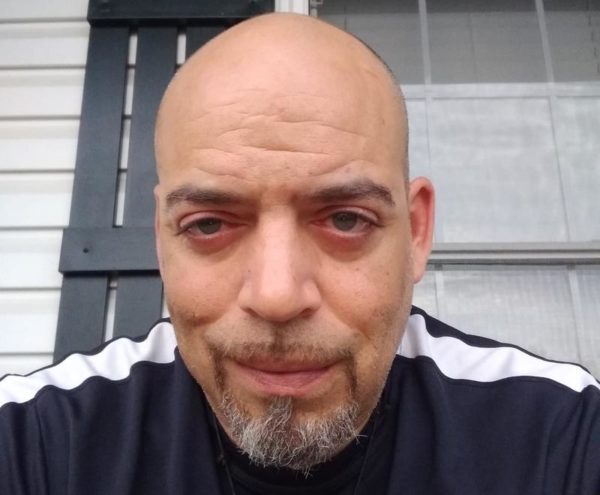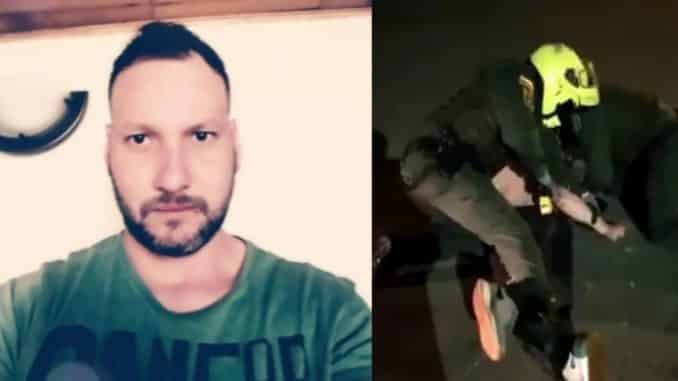Officially died in a hospital, though his family says the Navy veteran, honorably discharged from the navy in 2019, was killed three days earlier in his Antioch, California, home, after cops took turns kneeling on his neck until he lost consciousness.
Angelo sometimes struggled with anxiety and depression, following a head injury in 2020. On December 23, had been gripped by one of his “episodes,” as the Quinto-Collins family had labelled them. He’d been having these episodes since the beginning of the year—bursts of extreme paranoia that were never violent, according to his sister, Isabella Collins. During previous episodes, he would ask questions: What’s happening? What are you doing? Can you stay with me? “He just needed reassurance,” his sister Isabella says.
It was his sister who called the police. This episode had started to feel different, unpredictable—her brother was being physical with them in a way he had never been. She and her mother became concerned; Isabella threatened to call the police. Angelo didn’t seem to understand. He kept asking, “What’s going on?” But he was gripping his mother’s shoulders too tightly and ignoring her cries of pain. “My brother is hurting my mom,” she told the police.
Antioch police officers arrived to find Angelo and his mother on the floor. She had him in a bear hug—as much to comfort him as to restrain him, Isabella says. They pulled Angelo from his mother, folded him up, handcuffed him, and soon one of them was kneeling on his neck, then switching off so the other cop could kneel on his neck. Angelo had two fears: death and the police. He always told his mother to comply with the cops—don’t say anything, just follow along. So when the police extricated him from his mother’s arms, his only words were: “Please don’t kill me. Please don’t kill me.”. By the family’s estimate, the police kneeled on his neck for more than four minutes in all, even after he’d gone silent and stopped responding. They left him brain-dead before he got to the hospital, according to his family.
In a cellphone video recorded by his mother, Cassandra Quinto-Collins, her son is seen lying limp and unresponsive on the floor with blood on his face and on the floor beneath him. She is heard saying: “What happened? Does he have a pulse?”, as officers begin pumping his chest in an attempt to resuscitate him.
When the paramedics arrived and he was finally rolled over, his mother Cassandra saw her son’s bloody face, and his eyes in the back of his head. “That’s the vision I want to take out of my mind,” she says, her daughter comforting her. “I knew, [at] that time, he was dead.”
The cops seemed determined to prove that Angelo or perhaps a family member had done something wrong? They asked questions about drugs, medications, whether Angelo ate. “Did you hit him?” they asked Cassandra. The Quinto-Collinses were confused by the questions. All they got when they pushed back was resistance. “No matter what you said, they came back with the same questions over and over,” says Robert Collins, Angelo’s stepfather. Cassandra and Isabella were then carted off to the police station, where they waited nearly two hours for the officers to question them. Angelo’s younger brother and Robert were made to wait outside the house on the driveway, not allowed back into their home for hours.
Meanwhile, the police searched the house and collected, among other things, two cellphones, several photographs, and five vials of Angelo’s blood. “That really was to try and find evidence…he was a bad person, that he was operating in illegal activity, that he had some drugs in his room, he had weapons in his room—whatever they could find that would be illegal, to somehow muddy him up, to project him in a negative light,” says the family lawyer John Burris.
The following morning, the doctor called Cassandra while the family was at the station, asking for her by name. A police officer rushed her off the phone. She never got to speak to the doctor. At 6:30 a.m., Robert spoke to a doctor who expressed surprise that Angelo was alive. When he hung up, he says, a detective immediately started trying to reassure him that Angelo was in good shape. Not until December 25, after a day of trying, were the Quinto-Collinses able to see Angelo. “It was heartbreaking,” Cassandra says. He was in a weak state. Medical personnel had had to tape his eyes shut, and he was on a breathing machine. He was unresponsive except for a faint heartbeat.
The family lawyer John Burris filed a wrongful-death claim accusing police of having carried out an illegal chokehold, stating : “At no time while being restrained did Mr. Quinto resist physically or verbally After being restrained for almost five minutes, Mr. Quinto became lifeless.”. Burris said the officers that responded that night didn’t attempt to de-escalate the situation, but instead immediately grabbed Angelo from his mother’s arms and pushed him to the ground. “These Antioch police officers had already handcuffed Angelo but did not stop their assault on the young man and inexplicably began using the ‘George Floyd‘ technique of placing a knee on the back and side of his neck, ignoring Mr. Quinto pleas of ‘please don’t kill me.’ […] This horrific incident provides a haunting reminder that a seemingly minor call for help from the police can have deadly consequences for the person in need of help when the police use force first without verbally assessing the situation.” Burris also noted that the officers didn’t appear to turn on their body cameras.
Although the family claims he died of asphyxiation, Antioch police say pathologists found no evidence of strangulation or a crushed airway. While Angelo did incur some injuries during the encounter, Police Chief Tammany Brooks said none of them were fatal, adding that toxicology testing is underway due to his past drug use.
The family also want to know why the officers reacted to Angelo so abruptly in taking him from his mother’s arms, even though they had been forewarned that he was having mental health difficulties.
Antioch Police, who didn’t disclose Angelo’s death until nearly a month after the incident, when the Mercury News began reporting the story in January. denied claims that use of force led to the death. “At no point did any officer use a knee or other body parts to gain leverage or apply pressure to Angelo’s head, neck, or throat, which is outside of our policy and training,” Police Chief Tammany Brooks said during a news conference, adding that the investigation is still ongoing.

